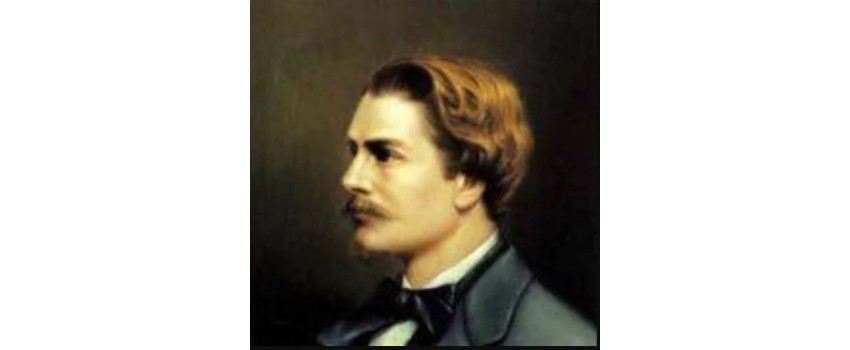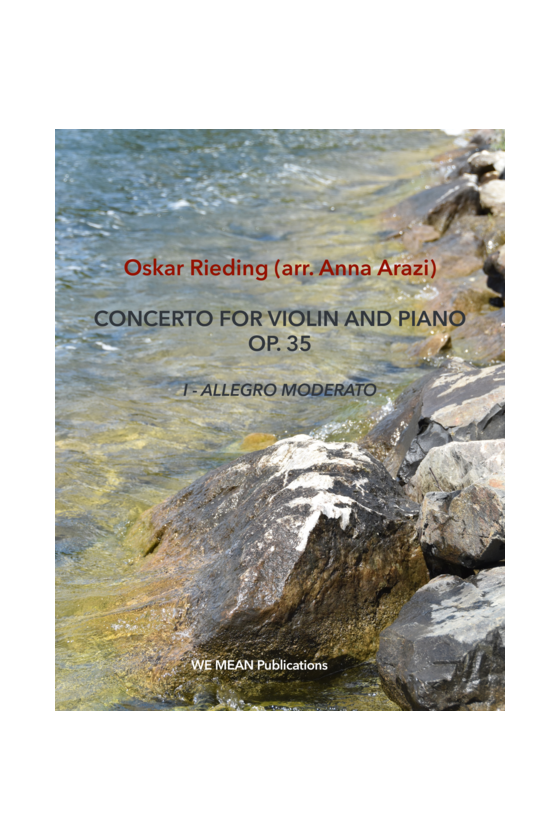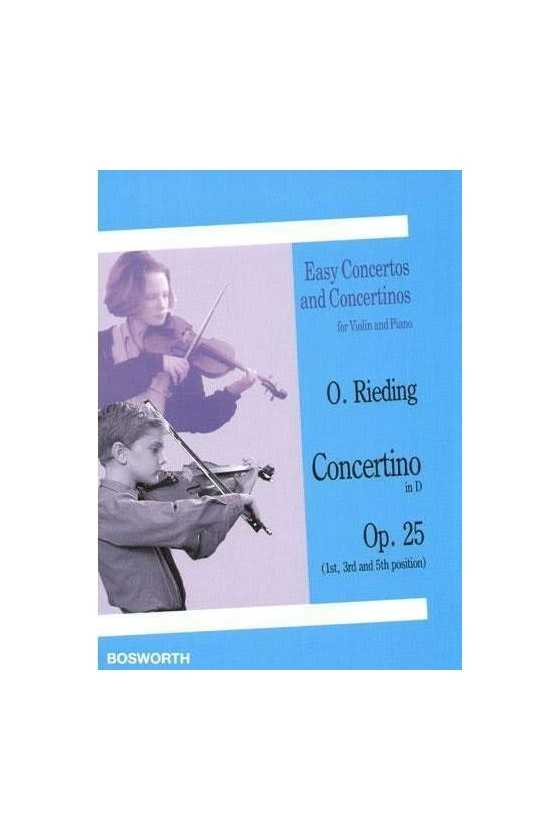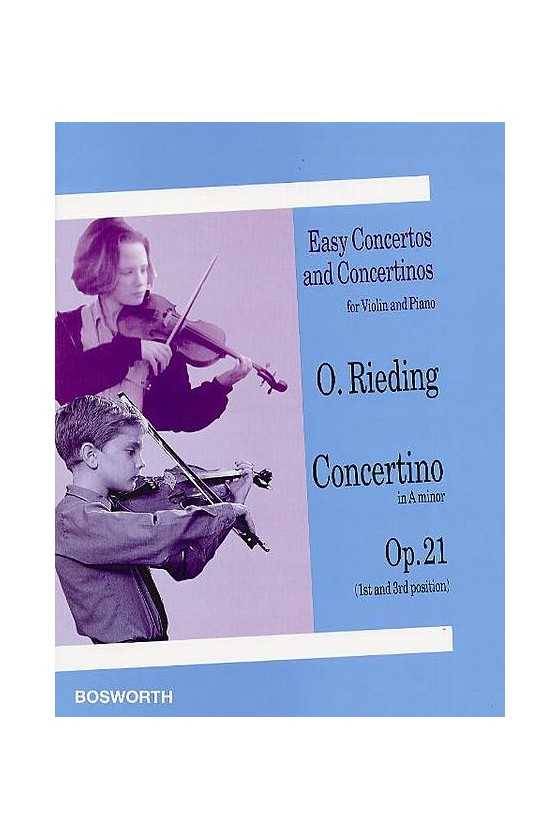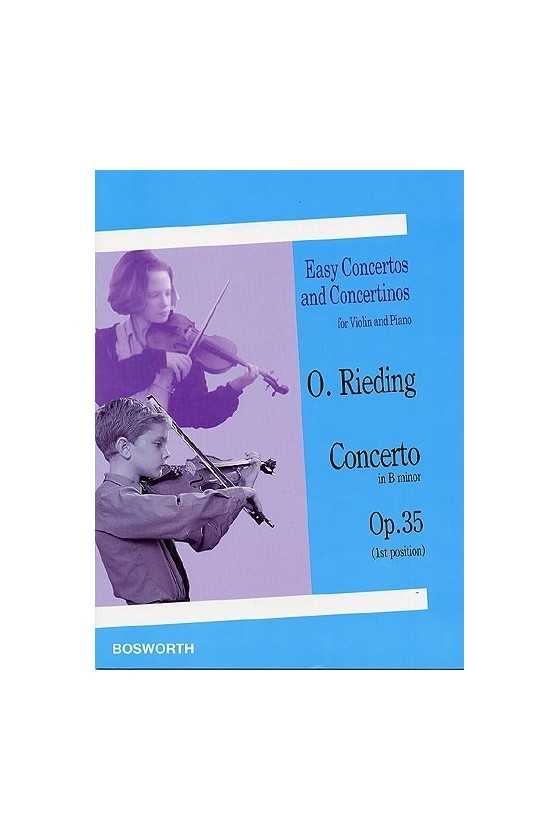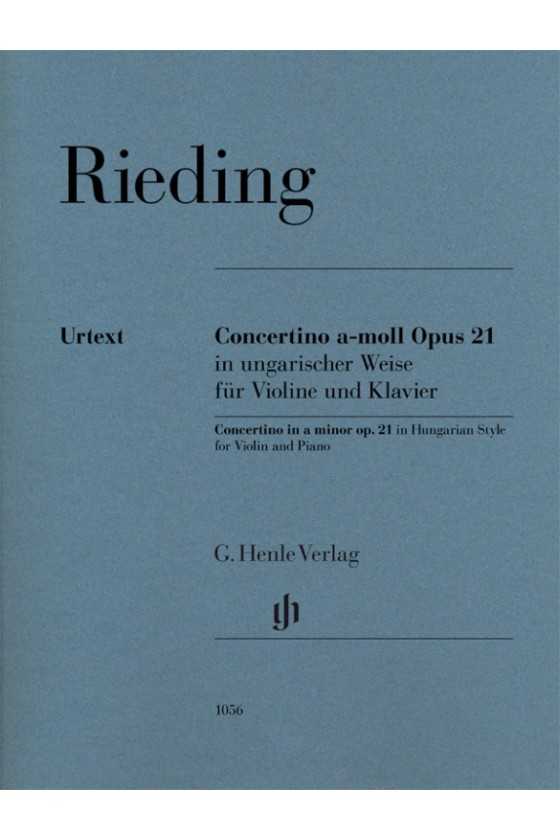Rieding, Oskar
Oskar Rieding was a celebrated violinist and composer whose contributions to Hungarian culture, particularly Budapest's musical life, have left an indelible mark. Born in 1840, Rieding's musical journey began at an early age, leading him to study at prestigious institutions such as the Academy of Musical Arts in Berlin and the Leipzig Conservatory. His talent and dedication eventually brought him to Vienna, where he served as a conductor for the orchestra led by Hans Richter, the Musical Director of the National Opera House in Budapest. Rieding's enriching musical career spanned over three decades, during which he composed numerous violin concertos and works for violin and piano.
Early Beginnings and Musical Education
Oskar Rieding's journey in the world of music began with his early exposure to the violin. From a young age, he displayed a natural talent for the instrument, captivating those around him with his melodic prowess. Recognizing his potential, Rieding's family encouraged his musical pursuits, leading him to enroll at the Academy of Musical Arts in Berlin. Under the guidance of esteemed instructors, Rieding honed his skills and developed a deep understanding of musical composition.
After completing his studies in Berlin, Rieding sought further musical education at the renowned Leipzig Conservatory. There, he immersed himself in the vibrant musical atmosphere, collaborating with fellow musicians and expanding his repertoire. The rigorous training and exposure to diverse musical styles played a vital role in shaping Rieding's unique approach to composition and performance.
Vienna and the National Opera House in Budapest
In the late 1860s, Oskar Rieding's journey led him to Vienna, a city renowned for its rich musical heritage. It was during this time that he caught the attention of Hans Richter, the Musical Director of the National Opera House in Budapest. Impressed by Rieding's exceptional talent, Richter appointed him as the conductor of the orchestra, marking a significant milestone in Rieding's career.
Rieding's tenure at the National Opera House spanned an impressive 32 years, during which he made significant contributions to Budapest's musical life. His compositions, ranging from symphonies to chamber music, captivated audiences and solidified his reputation as a gifted composer. Rieding's intricate understanding of the violin allowed him to create masterful works that showcased both technical brilliance and emotional depth.
The Works of Oskar Rieding
Oskar Rieding's compositions are characterized by their melodic beauty and virtuosic violin passages. His extensive body of work includes numerous violin concertos and compositions for violin and piano. Rieding's compositions are known for their accessibility, making them popular choices for both professional violinists and aspiring musicians.
One of Rieding's most renowned compositions is his Violin Concerto in B minor, Op. 35. This concerto, with its soaring melodies and intricate violin solos, has become a staple in the violin repertoire. Its expressive nature showcases Rieding's ability to evoke a range of emotions, captivating audiences with its heartfelt melodies and technical brilliance.
In addition to his violin concertos, Rieding composed several works for violin and piano. These compositions, such as his "Air Varié," "Concertino in Hungarian Style," and "Concerto in D Major," showcase his versatility as a composer and his ability to blend different musical influences. Rieding's works often incorporate elements of Hungarian folk music, reflecting his deep connection to Hungarian culture.
Legacy and Impact
Oskar Rieding's contributions to Hungarian culture and Budapest's musical life have left an enduring legacy. His compositions continue to be performed and celebrated by musicians worldwide, ensuring that his music remains alive and cherished. Rieding's ability to blend technical brilliance with emotional depth has made his works beloved by both performers and audiences, solidifying his position as a prominent figure in the world of classical music.
Beyond his compositions, Rieding's role as a conductor and his dedication to nurturing musical talent have had a profound impact on the Hungarian music scene. His leadership and mentorship provided aspiring musicians with invaluable guidance, fostering a new generation of talented performers and composers.
Conclusion
Oskar Rieding's life and music serve as a testament to the transformative power of music and its ability to transcend borders. His contributions to Hungarian culture, particularly Budapest's musical life, have enriched the world of classical music and left an indelible mark. Through his compositions and performances, Rieding captivated audiences with his melodic beauty, technical brilliance, and heartfelt expression. As we continue to celebrate his legacy, Oskar Rieding's music will forever serve as a reminder of the enduring power of artistic expression.
